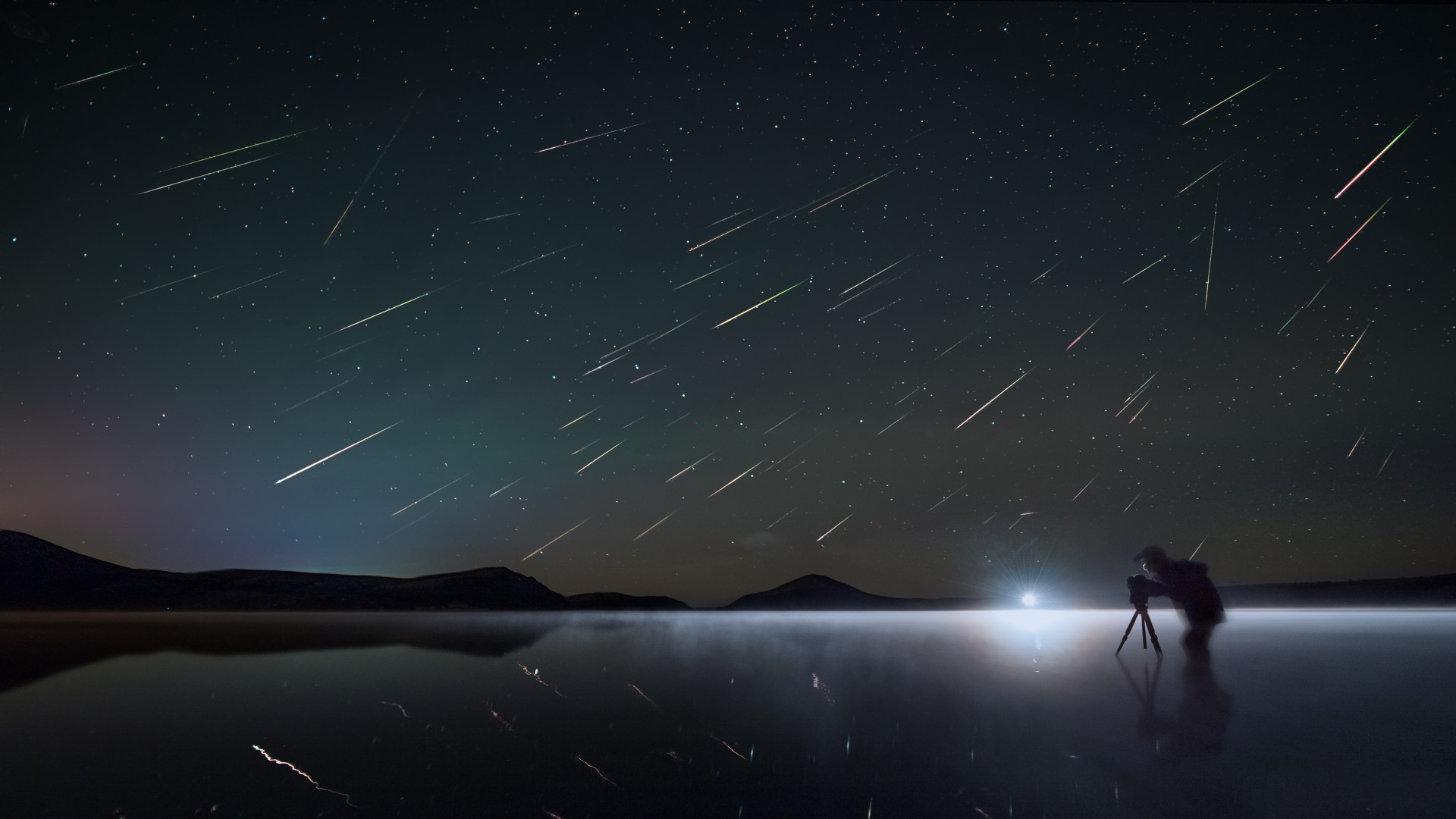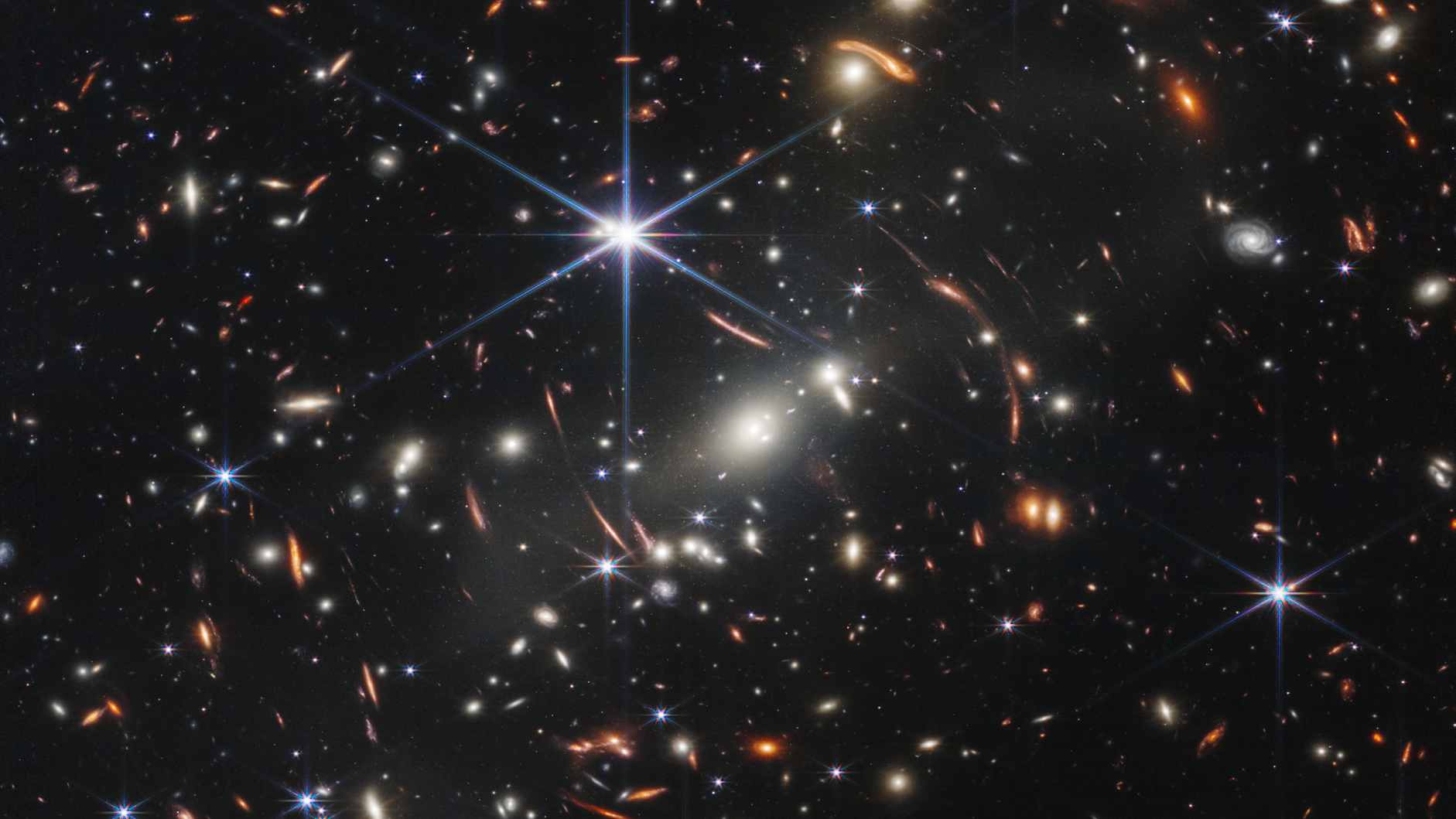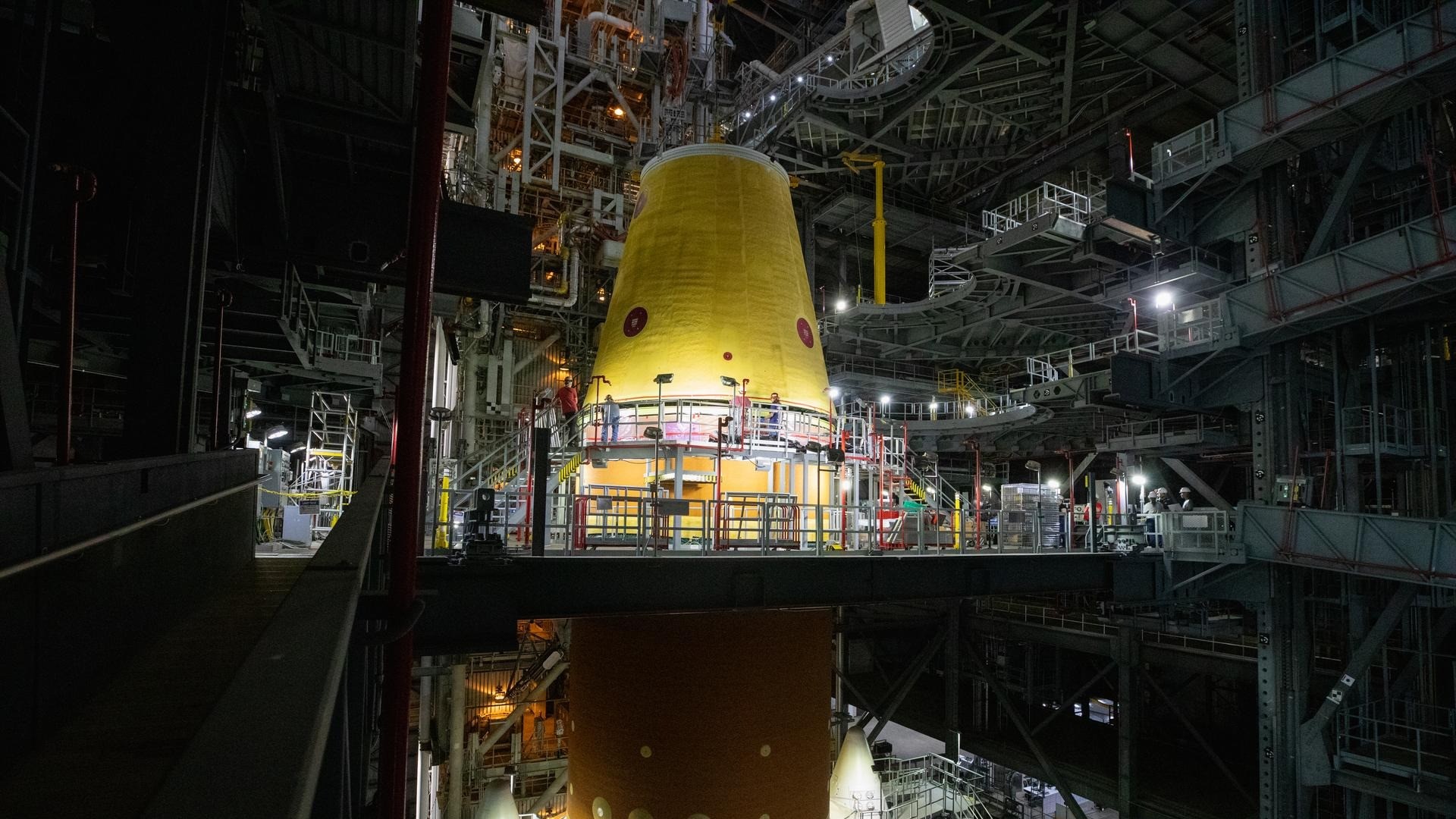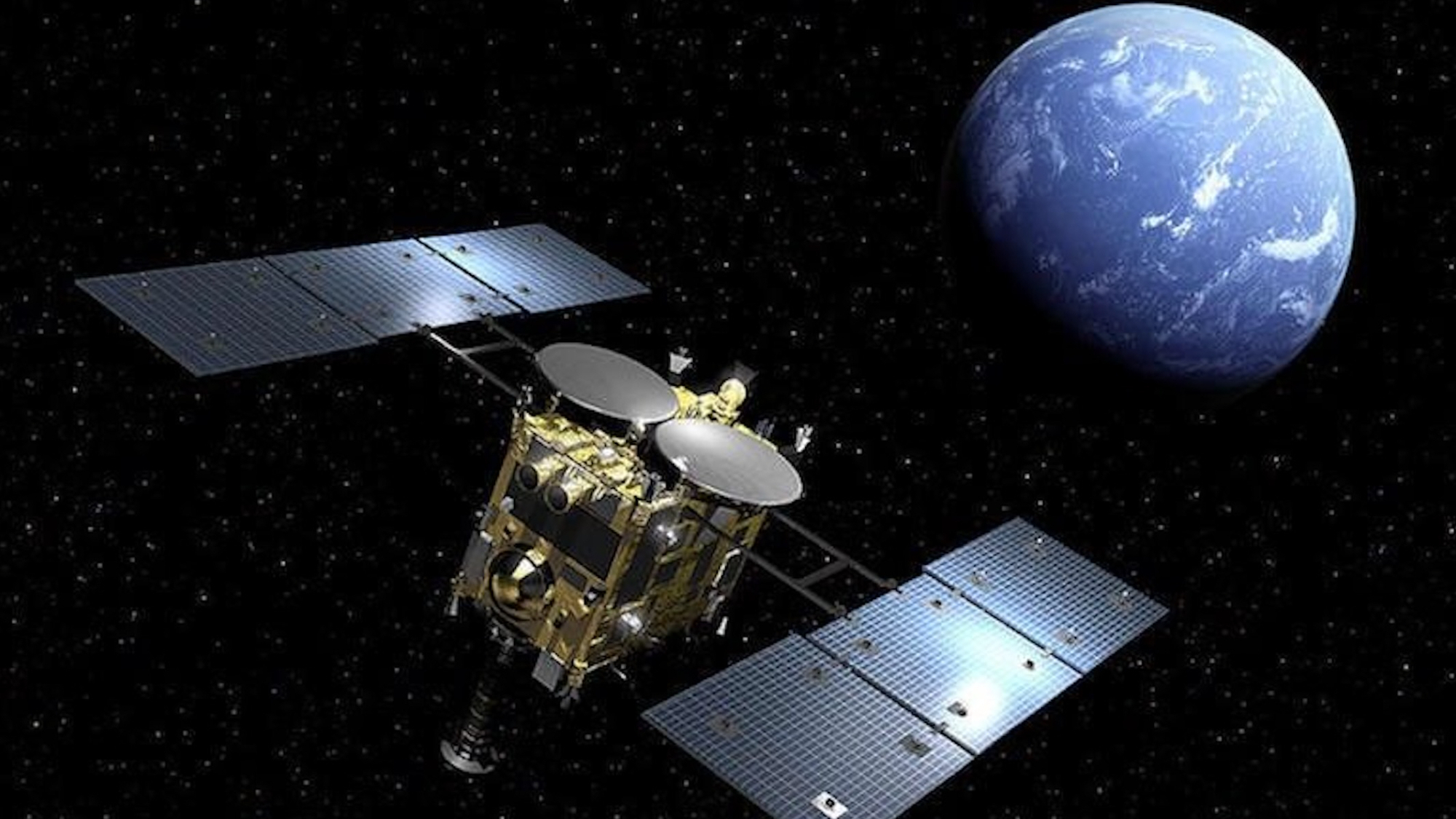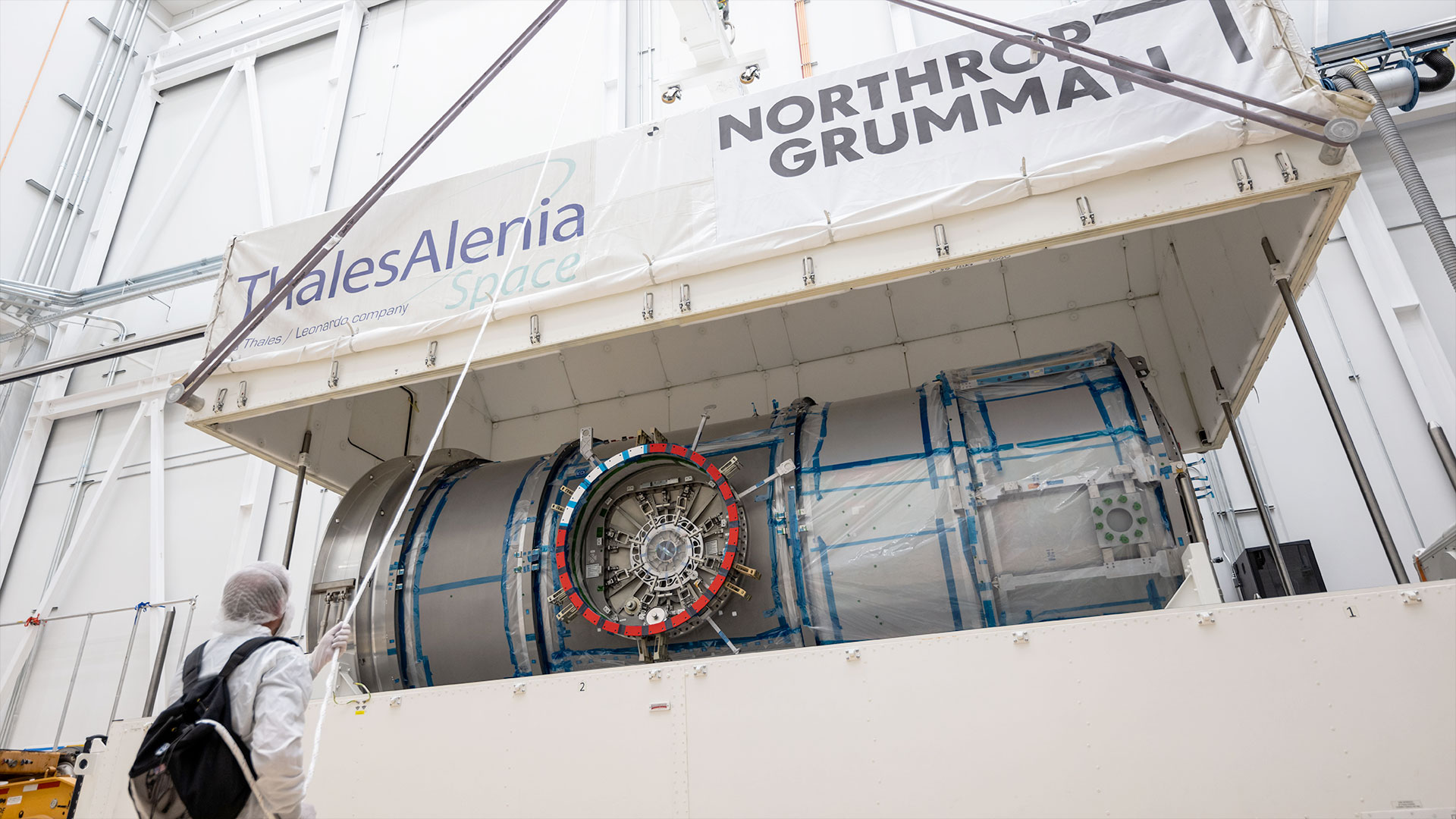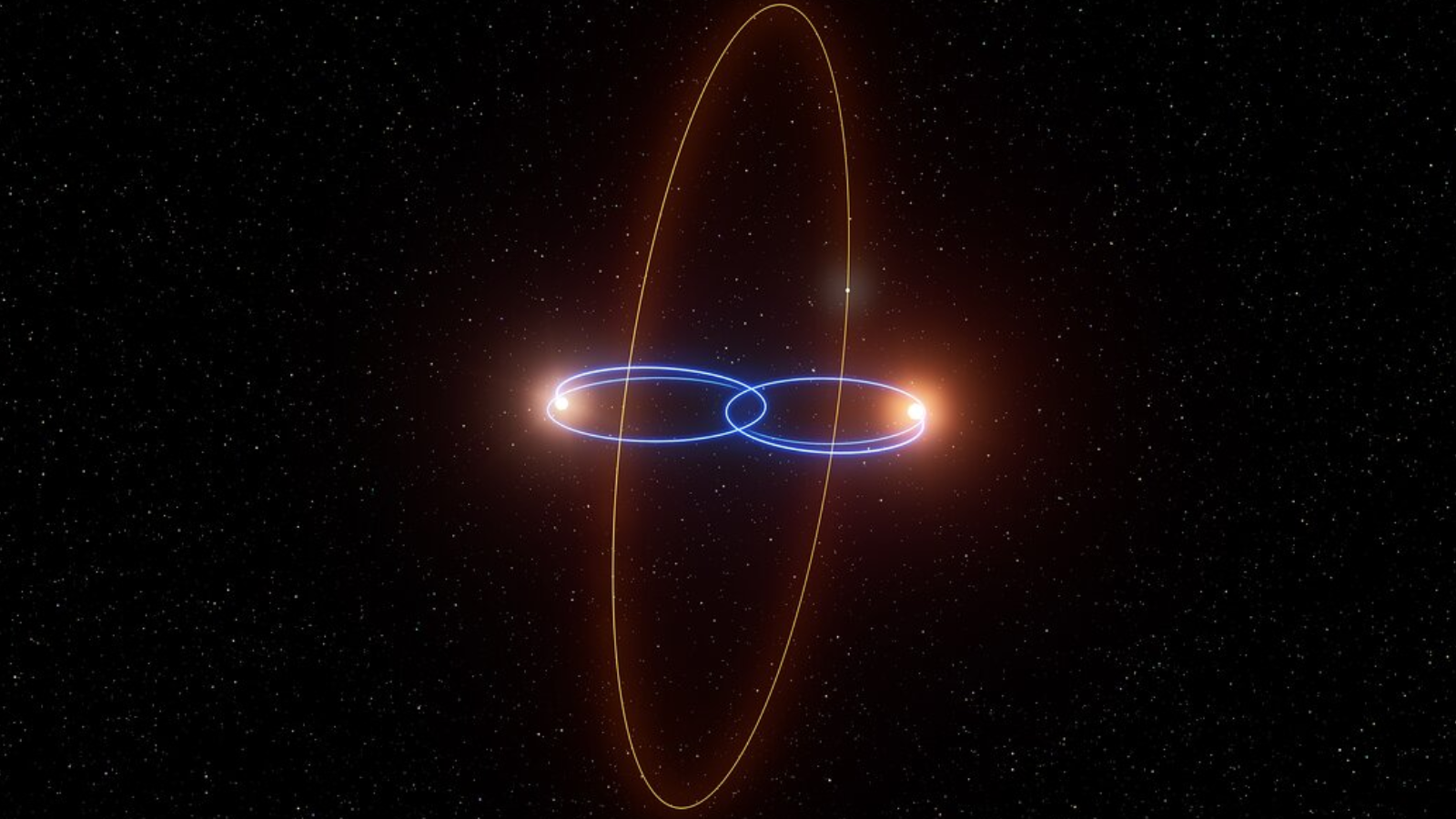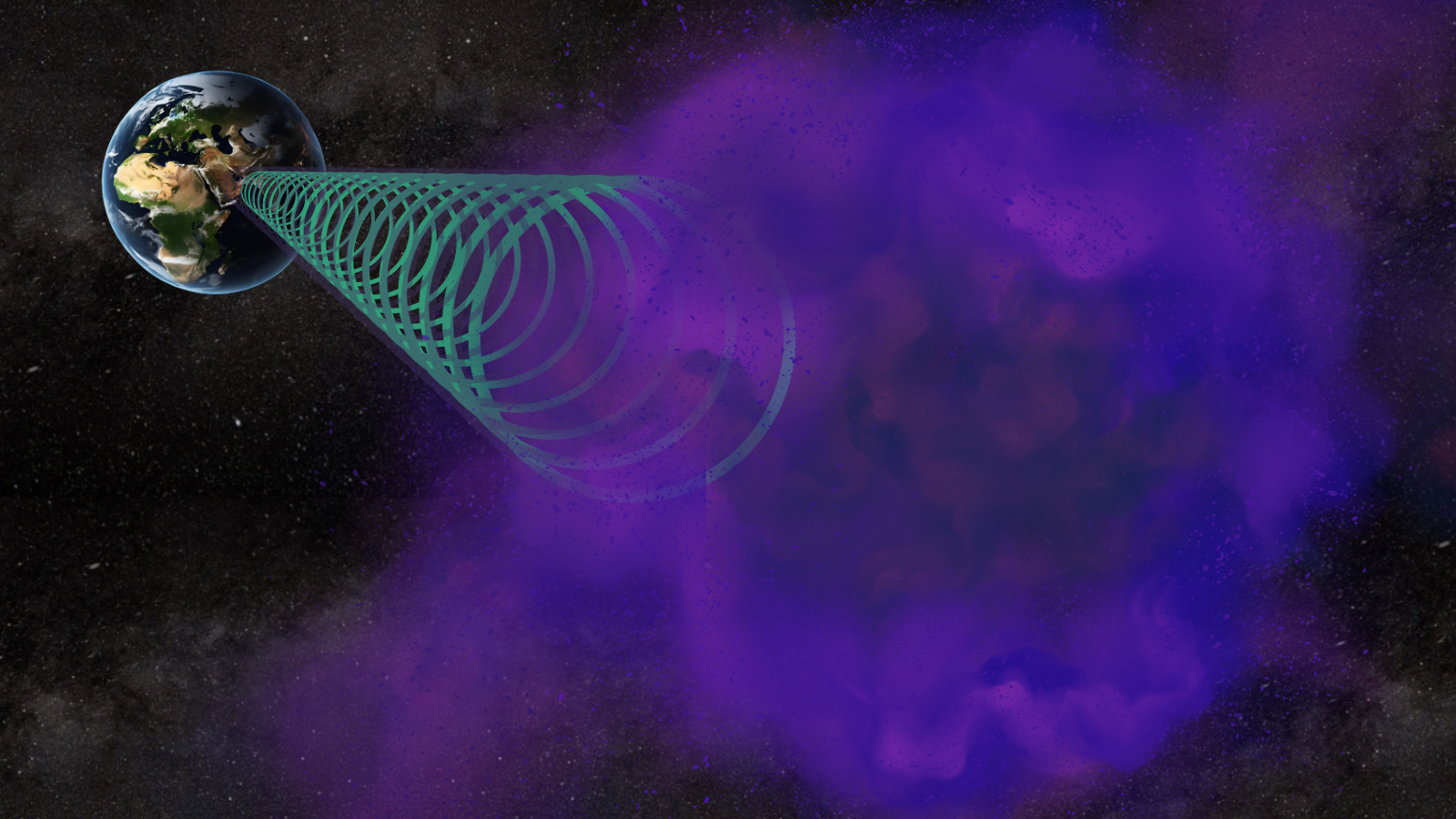The Hubble Space Telescope: A 25th Anniversary Photo Celebration
25 Years of Hubble Space Telescope Photos
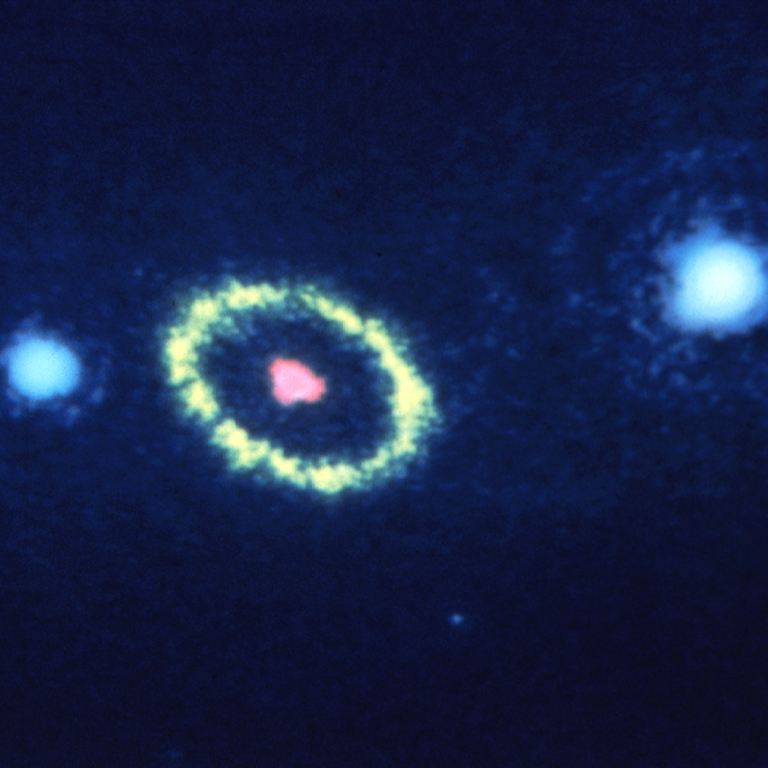
For the 25th anniversary of the Hubble Space Telescope in April 2015, 25 images were selected for a special gallery, one for each year of Hubble's lifespan. Here: A elliptical, glowing ring of gas about 1.3 light-years across surrounds the center of the great supernova of 1987, as shown in this Hubble Space Telescope image. The European Space Agency's Faint Object Camera observed the supernova on August 23-24, 1990, with unprecedented sharpness and clarity.
1991: NGC 4621
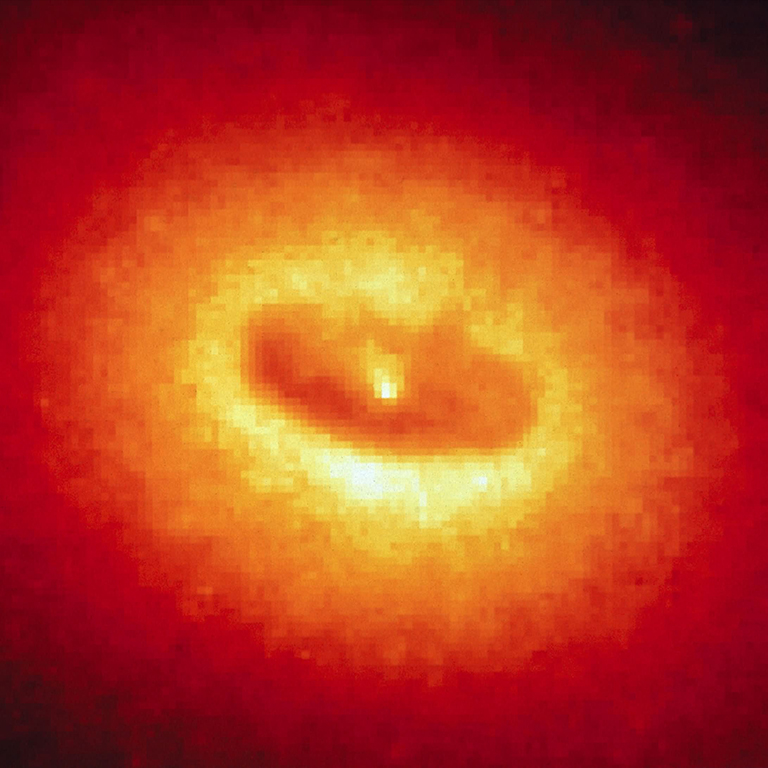
A giant, 300-light-year diameter disk of cold gas and dust fuels a what is suspected to be a supermassive black hole at the center of galaxy NGC 4261.
1992: Orion Nebula
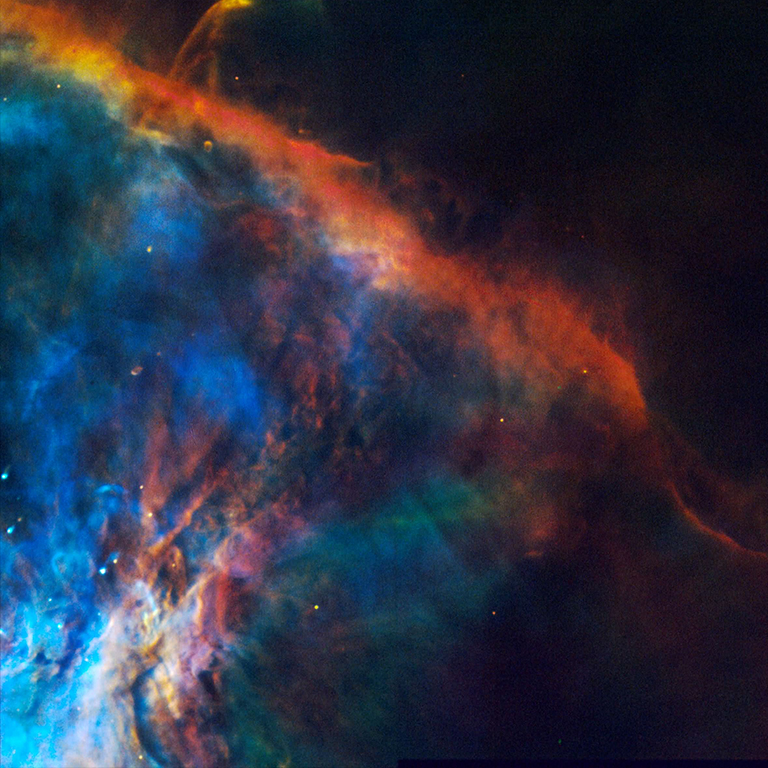
NASA's Hubble Space Telescope has discovered extended disks of dust around 15 newly formed stars in the Orion Nebula, a starbirth region lying 1,500 light-years away. These disks are a prerequisite for the formation of solar systems like our own.
1993: Veil Nebula
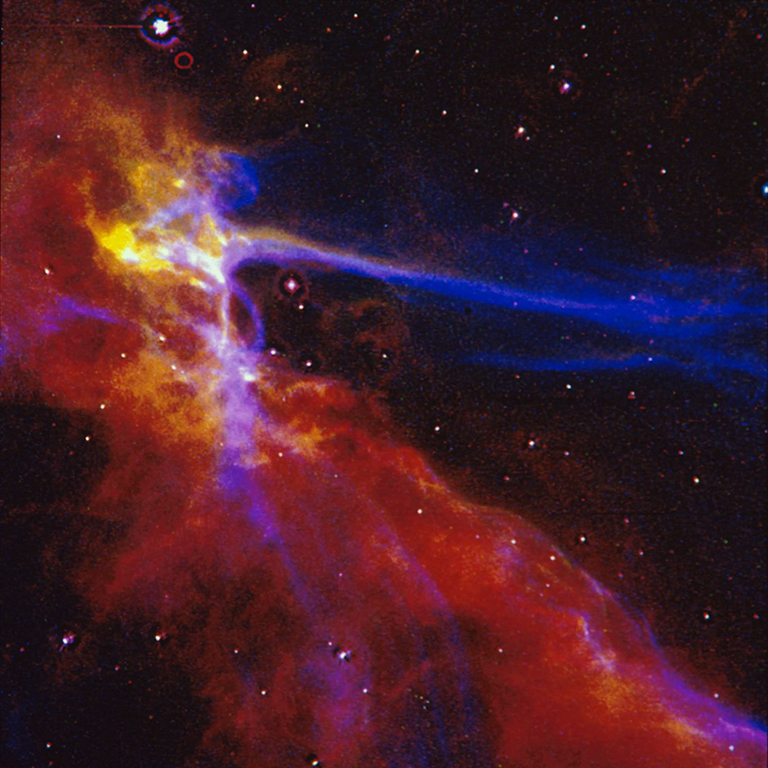
This image of a small portion of the Cygnus Loop supernova remnant was taken with the Wide Field and Planetary Camera on NASA's Hubble Space Telescope on April 24, 1991.
1994: Spiral Galaxy M100
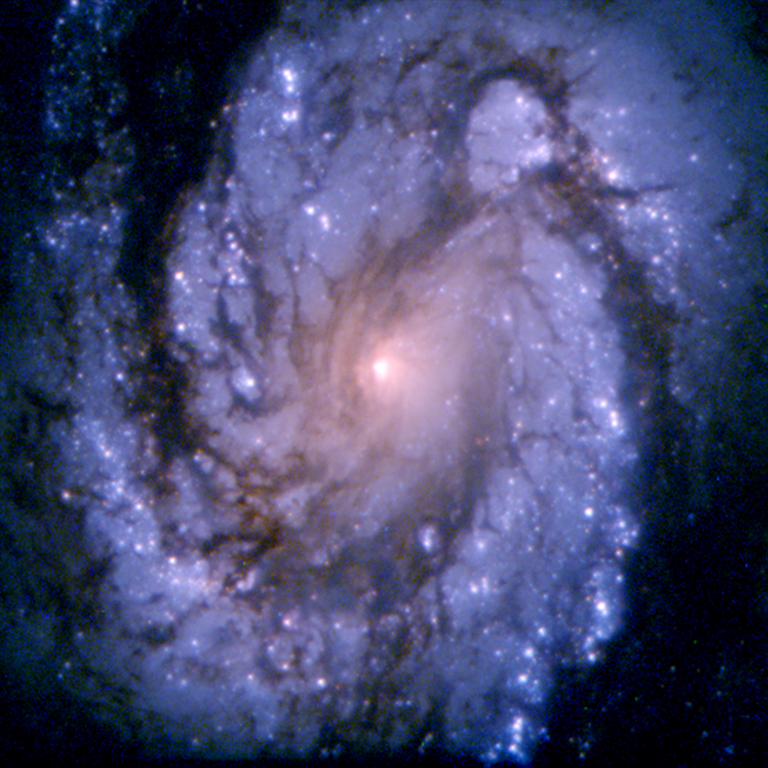
This image of the core of spiral galaxy M100 shows the improvement in Hubble Space Telescope's optics after repairs made during the STS-61 Hubble Servicing Mission. The new camera can resolve faint structures as small as 30 light-years across in a galaxy lying tens of millions of light years away.
1995: Eagle Nebula, M16
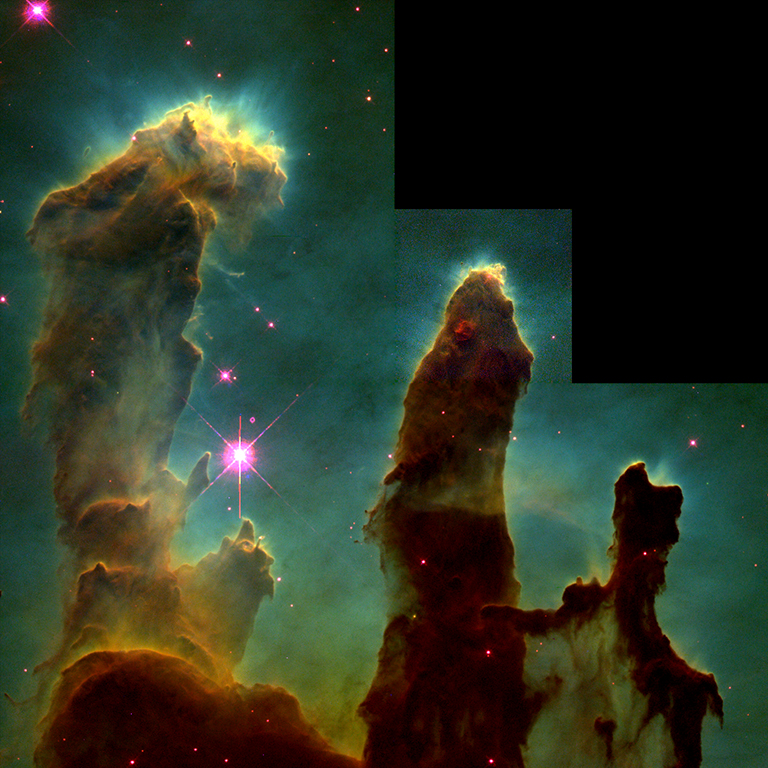
Hubble telescope images show the "elephant trunks" of the Eagle Nebula (M16). These columns of cold dust and gas contain pockets of interstellar gas called evaporating gaseous globules (EGGs), at the ends of finger-like features, from which newborn stars emerge.
1996: Hubble Deep Field
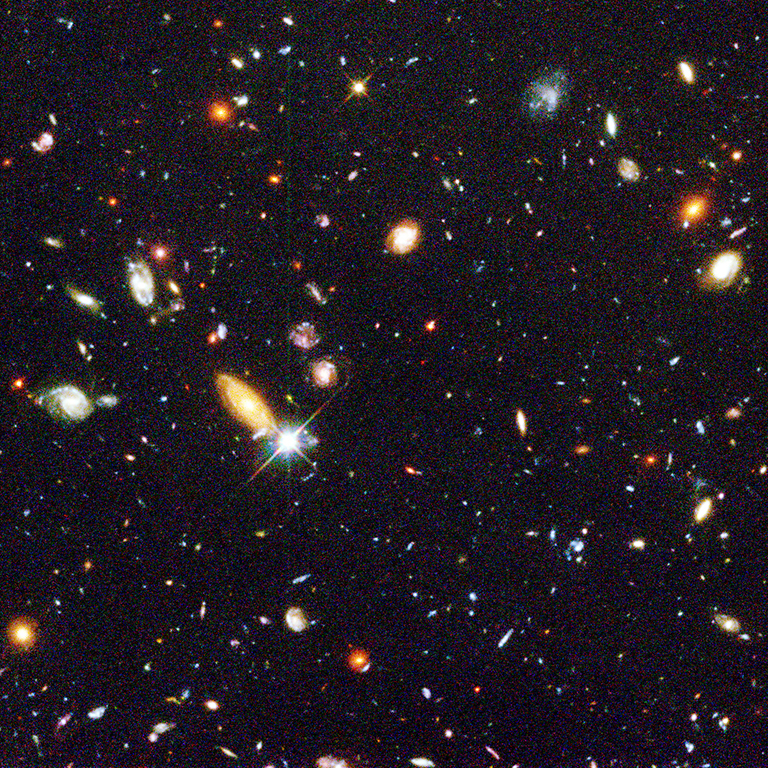
In 1996, the Hubble telescope provided the deepest, most detailed visible view of the universe. Representing a narrow view extending to the visible horizon of the universe, the Hubble Deep Field image contains at least 1,500 galaxies at various stages of evolution.
Get the Space.com Newsletter
Breaking space news, the latest updates on rocket launches, skywatching events and more!
1997: M84 Black Hole Signature
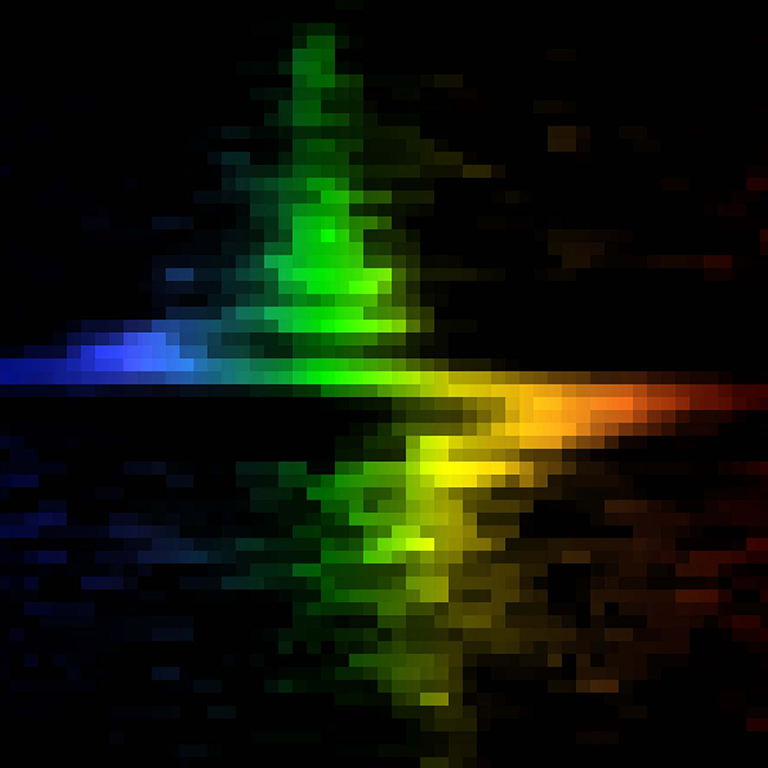
This image by Hubble Space Telescope's Space Telescope Imaging Spectrograph (STIS) shows the signature of a supermassive black hole in the center of galaxy M84. Astronomers mapped the rotational motions of gas and stars around the black hole by aligning the STIS's spectroscopic slit across the nucleus in a single exposure.
1998: NGC 4314
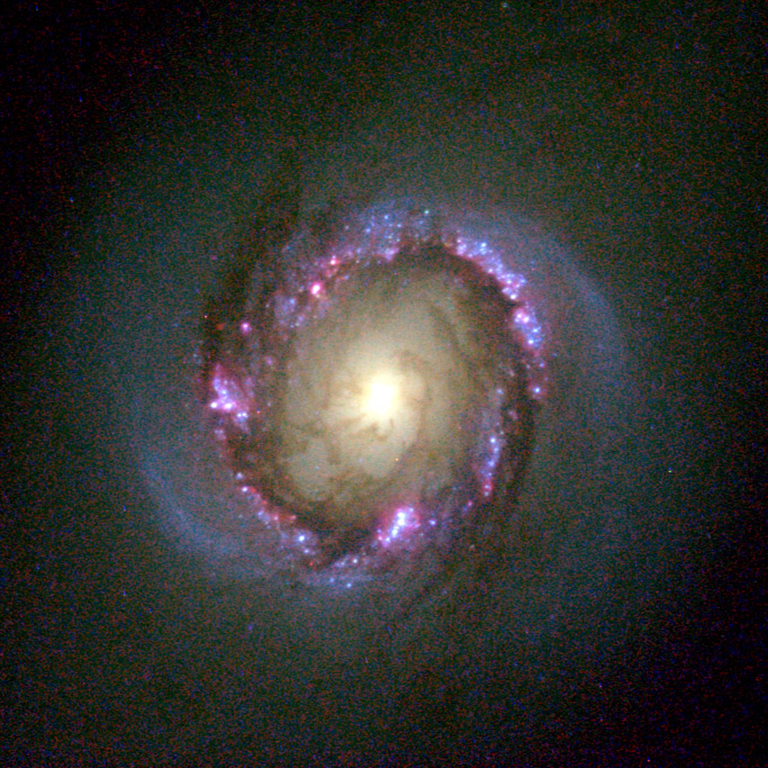
Hubble Space Telescope obtained this close-up view of the core of Galaxy NGC 4314 in December 1995. Clusters of infant stars make up the bluish-purple clumps of the ring. Two dark, wispy lanes of dust and a pair of blue spiral arms lie just outside the star-forming ring.
1999: Mars 2000
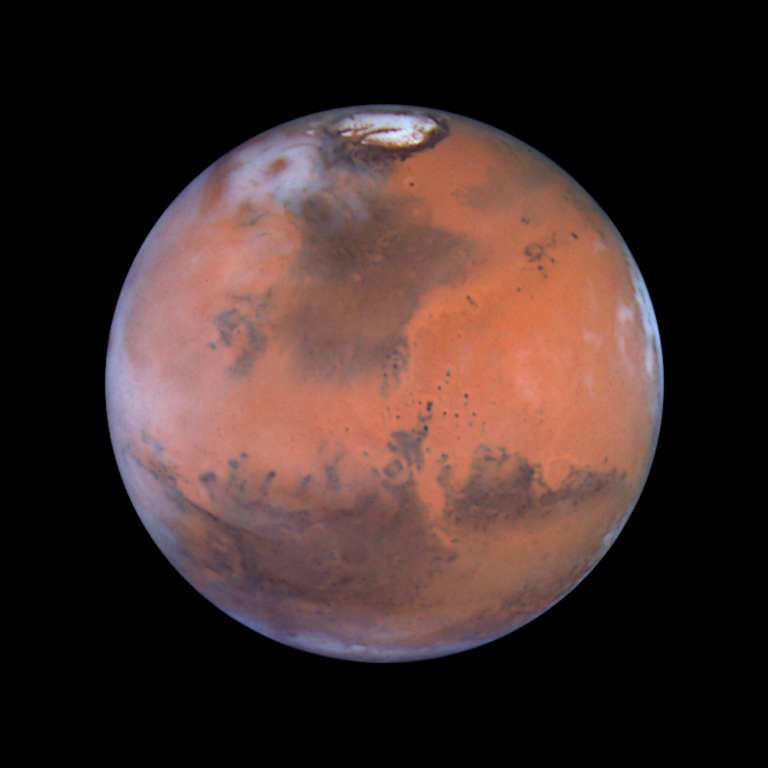
The Pathfinder spacecraft landing site lies near the center of this Hubble Space Telescope image of Mars. Dark sand dunes surrounding the polar cap merge into a large, dark region called Acidalia, which consists of dark, sand-sized grains of pulverized volcanic rock. Below and to the left of Acidalia sit the immense Martian canyon systems of Valles Marineris.
2000: The Eskimo Nebula (NGC 2392)
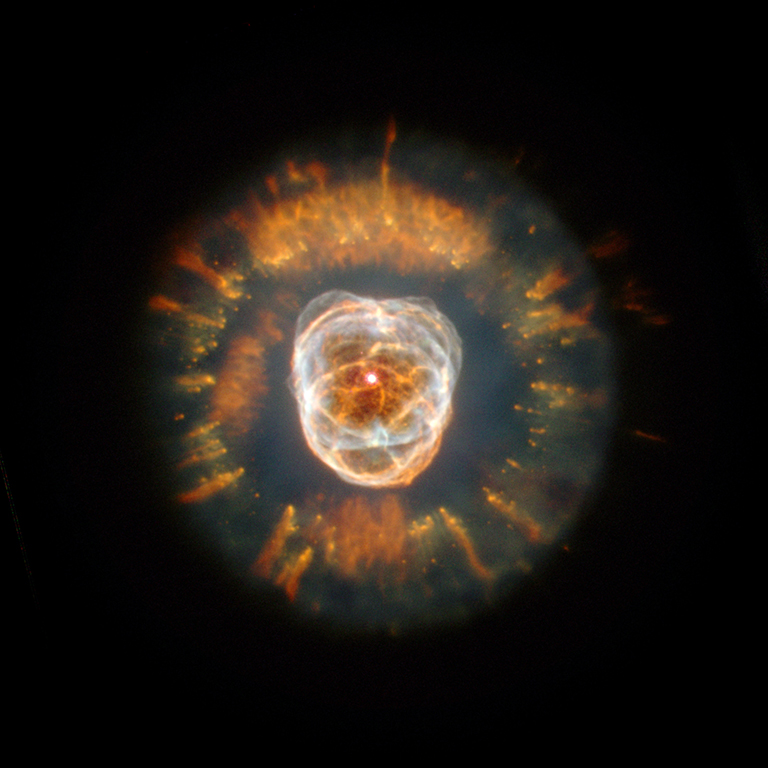
Following the successful December 1999 servicing mission, NASA's Hubble Space Telescope captured this planetary nebula, the remains of a dying, sun-like star. The "Eskimo" Nebula (NGC 2392), as seen in ground-based telescopes, appears reminiscent of a face surrounded by a fur parka. The parka-like shape consists of a disk of material embedding a ring of comet-shaped objects, with tails streaming away from the central star.
Join our Space Forums to keep talking space on the latest missions, night sky and more! And if you have a news tip, correction or comment, let us know at: community@space.com.

Space.com is the premier source of space exploration, innovation and astronomy news, chronicling (and celebrating) humanity's ongoing expansion across the final frontier. Originally founded in 1999, Space.com is, and always has been, the passion of writers and editors who are space fans and also trained journalists. Our current news team consists of Editor-in-Chief Tariq Malik; Editor Hanneke Weitering, Senior Space Writer Mike Wall; Senior Writer Meghan Bartels; Senior Writer Chelsea Gohd, Senior Writer Tereza Pultarova and Staff Writer Alexander Cox, focusing on e-commerce. Senior Producer Steve Spaleta oversees our space videos, with Diana Whitcroft as our Social Media Editor.
